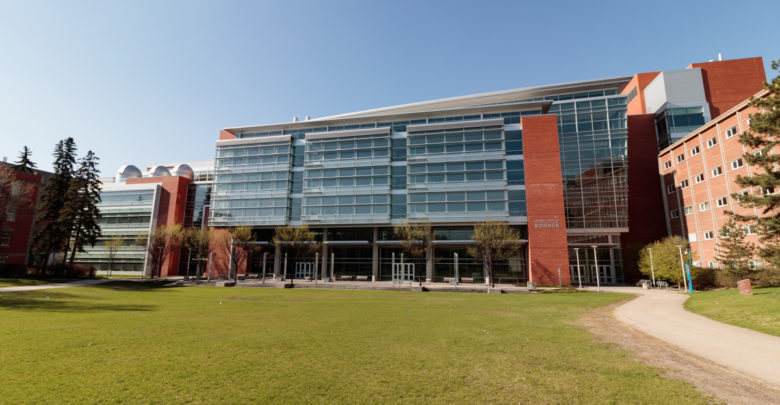UA-WISE and WISER connect generations of scientists, engineers, and researchers through virtual mentorships
The mentorship program creates trios consisting of one undergraduate student, one graduate student or early-career professional, and one experienced professional.
 Christien Ford
Christien FordUA-WISE and WISER are continuing to connect generations of women scientists, engineers, and researchers through virtual mentorships during the COVID-19 pandemic.
Undergraduate and graduate organizations Women in Science, Engineering & Research (WISER) and University of Alberta Women in Science and Engineering (UA-WISE) connect and represent a diverse generation of student scientists, engineers, and researchers to professionals within their fields through a virtual mentorship program.
Beginning in September and running until March, this mentorship program has moved to a virtual platform due to COVID-19, in hopes of still completing their mission, even from a distance.
The mentorship program creates trios consisting of one undergraduate student, one graduate student or early-career professional, and one experienced professional, to stimulate mentorship and connections in STEM fields.
According to Noor Al-Zanoon, PhD student in rehabilitation science and co-lead from WISER, and Gwyneth Liske, fourth-year chemical engineering student and chair of UA-WISE, the main motivation for the program is to give young women and underrepresented individuals in STEM, and opportunities that may be hard to access otherwise.
“We focus on empowering young women and helping them grow both professionally and personally, and giving them those opportunities through mentorship,” Al-Zanoon explained.
“Our mentorship program is mainly focused on helping minorities in STEM fields, to learn from other professionals, but it is open to anyone,” Liske added. “Our focus is mainly on supporting minorities in STEM fields.”
Each mentorship trio meets every two months, meeting for a minimum of 12 hours in total. Trio matching is based around future goals and areas of expertise, focusing primarily on developing professional skills and providing opportunities that may be hard to access for underrepresented groups.
These UA-WISE and WISER mentorships are organized by yearly themes, to attempt to relate the mentorships to current events in the world. Al-Zanoon explained this year’s theme to be “How to develop meaningful relationships and mentorships online, in the new virtual world,” tying it into the virtual turn the world has taken due to the COVID-19 pandemic.
Liske explained how they hope the mentorship program is beneficial to all members of the trio. Drawing on personal experience, she explained how a mentorship program is beneficial to undergraduate students by creating a professional network not readily available to undergraduate students.
“As an undergrad student I can also relate to this. It’s definitely hard to make meaningful connections with professionals, and graduate students while in your undergrad,” Liske explained. “Now more than ever, with a lot of jobs and funding being cut from a lot of companies and a lot of programs, being able to make these connections with professionals and graduate students is really valuable for undergrads.”
Al-Zanoon drew attention to the graduate or early-career professional in the trio, and how being mentored and mentoring can be beneficial to developing professional skills, especially when transitioning from school to industry.
“The graduate or early-career professional gets the opportunity to learn how to mentor an undergraduate, which is an important skill to have especially as an early-career professional,” Al-Zanoon explained. “Because there’s an experienced professional in the trio… [the graduate students] learn how to mentor, while they are also being mentored.”
For the experienced professional, the pair also believes the experience also provides them with useful knowledge and experience.
“I think this is also pretty valuable experience for the experienced mentors to also grow their network and improve their skills,” Liske explained. “Even professionals who have a lot of experience are still very eager to grow and share their knowledge.”
“They also get to connect with the upcoming generation of new scientists or new researchers or engineers that are going to be their future colleagues,” Al-Zanoon added.
The transition to conducting the mentorship program online wasn’t seamless according to Al-Zanoon. However, she also drew attention to the benefits of having an online program.
“We are anticipating some challenges in terms of keeping people engaged online, getting them to meet independently might be a bit of a challenge, in terms of getting them to do some professional development activities,” Al-Zanoon explained. “[However] some of the advantages of the mentorship program being online is that it becomes more accessible, and we have mentors from across the country.”
Al-Zanoon emphasized the main motive behind the program.
“We want to empower young women and help them grow both professionally and personally, by giving them opportunities through mentorship.”




